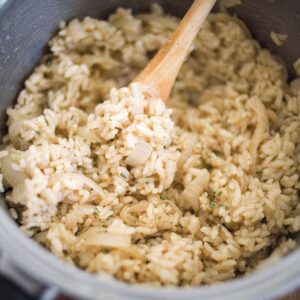
From grizzles and rashes to running wild and refusing to go to bed, kids’ ailments and bad behaviour are often blamed on too much junk food. But is something else going on? Dietitian Katrina Pace finds out.
To answer the question, ‘Are kids’ problems really about food?’, it helps to understand how food works. Along with oxygen and water, food is a building block for everything that goes on in your body. Digestion starts as soon as you put food and drink in your mouth. Enzymes start to break down starchy foods, and saliva mixes in to help them move down into your stomach. All the way through the stomach and intestines, food mixes with enzymes, acids and other digestive substances, breaking down to be used by your body.
Once broken down, food is processed through ‘biochemical pathways’ to release energy and build enzymes, hormones, neurotransmitters and other compounds for the body to use. Genes, inflammation, environmental toxins, gut bacteria and diet can all affect how these pathways work, which is why, sometimes, even the healthiest diet can lead to food-related problems.
Here are four common problems, sometimes aggravated by what kids eat:
1. Behaviour and mood issues
When kids behave badly, sugar and artificial additives are two food-related culprits that spring to mind first. Although clinical studies don’t give conclusive results, trends show either one could be involved in some behaviour and mood problems. A study of nearly 3000 five-year-old children showed drinking high-sugar soft drinks every day can be associated with aggression, poor attention or being withdrawn. Similar effects have been seen in older children.
As for artificial additives, research funded by the UK Food Standards Agency suggests a potential link between certain food colourings and behavioural problems in some children. On the back of this, British manufacturers have been encouraged to cut out certain colourings, otherwise they must add a warning to the label on possible effects on behaviour.
Another group of foods potentially linked to behavioural and mood problems in kids are chemicals called salicylates, amines and glutamates. Their effects on mood and behaviour were observed in work pioneered by US paediatric allergist Benjamin Feingold in the 1970s and by the allergy unit at Sydney’s Royal Prince Alfred Hospital. Salicylates are found in most plant foods, nuts and honey as well as in certain artificial colourings (azo dyes). Amines are proteins in cheese, meat, fish and some fruits and vegetables (for example, ripe bananas). Glutamates are often found in the same places as amines, but also as monosodium glutamate (MSG) and flavour enhancers in foods.
2. Breathing problems
For children with asthma, sulphites in foods potentially make breathing problems worse. Sulphites are a preservative and must be listed on food labels. They are most commonly found in dried fruit, soft drinks, fruit juice, jams, some mayonnaises, pickles and sauces. Around 4–10 per cent of people who take long-term steroid treatments to control their asthma (inhalers) will react to sulphites. Avoiding food containing sulphites potentially helps reduce the risk of an asthma attack.
3. Eczema and other skin problems
Eczema affects nearly a quarter of school-aged children. Although there are many different causes, food sensitivities are a common trigger. The foods most likely to trigger eczema are milk, egg, peanuts, soy, wheat, tree nuts, sesame, shellfish and kiwifruit. Other foods reported to cause skin problems are tomatoes, strawberries and citrus fruits, and foods high in amines or salicylates. Urticaria, or hives, is a skin condition that often responds to a low-salicylate diet.
4. Tiredness
Helping kids unwind before bed can be a challenge. Setting a good routine of quiet activities instead of screen time is one of the best things for helping kids to settle. Another is giving something to calm them down. Traditionally, we would give warm milk. Milk contains tryptophan, an amino acid the body needs to build substances that help us sleep. If your child doesn’t fancy milk, try yoghurt, bananas, honey or pumpkin seeds, which are also high in tryptophan.
During the day, regular consumption of food and drink keeps children topped up with energy to continue learning and playing well. Encourage your kids to start the day with a good breakfast. Eating foods high in iron and vitamin C is also important for growing boys and girls. Low blood-iron levels will make your child tired and lethargic. Red meat, baked beans and iron-fortified cereals are all high-iron food choices that kids enjoy. Recent Dutch research suggests fatigue in children can be reduced by giving them a vitamin- and mineral-dense diet. In the study, green vegetables were provided five times a week, beef three times a week and milk daily.
If you suspect your child is having food reactions
Don’t exclude whole food groups without advice from a trained professional with experience in this area.
Keep a food and symptom diary Start documenting what your child is eating and what their symptoms are, to help show whether food is a problem. Be very clear about what the symptoms are. Remember, some food reactions may build up over time, some may come on over a few hours, and others may be almost immediate.
Clean up their diet (see Food for happy kids, below).
Avoid additives. The main ones to watch for are:
- Food colourings 102, 104, 110, 122–124, 127, 129, 132, 133, 142, 143, 151, 155
- Preservatives 200–03, 210–19, 220–28, 249–52, 280–83
- Antioxidants 310–21, 319–21
- Flavour enhancers 620–25, 627, 631, 635
Remember that making big changes to your children’s diet can affect the nutrients they are getting. This could cause as many problems as the food reactions. Make sure you seek advice from a trained professional.
Diet is rarely the cause alone. Make sure you have a behaviour plan, skin-treatment regimen or asthma plan by a health professional to go with any dietary changes.
Food for happy kids
Kids thrive on whole foods. Enjoying homemade food, prepared with love and minimally processed ingredients, benefits everyone.
- Avoid breakfast cereals with added sugar, salt and flavourings, and instead offer kids rolled oats, unflavoured instant oats, scrambled eggs, toast, yoghurt or muesli.
- Swap packet snacks for fruit or vege sticks, boiled eggs, no-added-sugar dried fruit, or homemade biscuits and crackers.
- Get kids involved in choosing what they eat. Kids of all ages can help plan the week’s lunches and dinners.
- Planning ahead makes it easier to use fresh, whole foods.
- Eating together at the table with a selection of vegetables they can serve themselves helps kids make healthy choices.
Food for focus
Make sure kids have enough to drink. Dehydration can result in a lack of concentration and performance at school. Keep kids away from flavoured, sweetened energy drinks that may contain artificial additives, sugar or caffeine. Water is perfect.
Getting enough omega-3 fats has been shown to help some kids with their attention span, reading and general behaviour. Consuming 500mg of omega-3 fats each day for at least three to six months may help improve concentration. To get this, aim for two to three serves of oily fish each week, or use fish oil capsules daily.
Encourage kids not to skip meals. Eating regular meals, and especially breakfast, can help kids to stay focused, and encourages learning and playing, whereas a lack of food can increase frustration and aggression. Offer high-fibre, high-protein wholefood meals and snacks, such as yoghurt with fruit and nuts, home-popped popcorn, or eggs on wholegrain toast.
Article sources and references
- Beattie E. 2015. Adverse food reactions in patients with atopic eczema. Dermatological Nursing 14: 10-14https://www.ingentaconnect.com/content/bdng/dn/2015/00000014/00000002/art00001
- Benton D. 2011. Dehydration influences mood and cognition: A plausible hypothesis? Nutrients 3: 555-73https://www.ncbi.nlm.nih.gov/pmc/articles/PMC3257694/
- Martyn et al. 2013. Food additives and pre-school children. Proceedings of the Nutrition Society 72:109-16https://www.cambridge.org/core/journals/proceedings-of-the-nutrition-society/article/food-additives-and-preschool-children/8DE1DDE502B4F83D41342344BB431EFB
- Millichap JG & Yee MM. 2012. The diet factor in attention-deficit/hyperactivity disorder. Pediatrics 129:330-7https://www.ncbi.nlm.nih.gov/pubmed/22232312
- Richardson AJ. 2006. Omega-3 fatty acids in ADHD and related neurodevelopmental disorders. International Review of Psychiatry 18:155-72https://www.ncbi.nlm.nih.gov/pubmed/16777670
- Skypala IJ et al. 2015. Sensitivity to food additives, vaso-active amines and salicylates: a review of the evidence. Clinical and Translational Allergy 5:1https://www.ncbi.nlm.nih.gov/pubmed/26468368
- Solnik SJ & Hemenway D. 2012. The ‘Twinkie defence’: the relationship between carbonated non-diet soft drinks and violence perpetration among Boston high school students. Injury Prevention 18:259-63https://www.ncbi.nlm.nih.gov/pubmed/22025524
- Steenbruggen TG et al. 2015. Could a change in diet revitalize children who suffer from unresolved fatigue? Nutrients, 7:1965-77https://www.rug.nl/research/portal/files/21835908/nutrients_07_01965.pdf
- Stevens LJ et al. 2010. Dietary sensitivities and ADHD symptoms: thirty-five years of research. Clinical Pediatrics 50:279-93https://www.tandfonline.com/doi/pdf/10.1185/03007995.2011.607573
- Suglia SF et al. 2013. Soft drinks consumption is associated with behavior problems in 5-year-olds. The Journal of Pediatrics, 163:1323-8https://www.ncbi.nlm.nih.gov/pubmed/23968739
- Yu C-J et al. 2016. Sugar-sweetened beverage consumption is adversely associated with childhood Attention Deficit/Hyperactivity Disorder. International Journal of Environmental Research and Public Health, 13:678https://www.mdpi.com/1660-4601/13/7/678
- National Health and Medical Research Council. 2014. Nutrient Reference Values for Australia and New Zealand – Iron. www.nrv.gov.au/nutrients/iron Accessed May 2016.https://www.nrv.gov.au/
- National Sleep Foundation. 2006. Sleep-wake cycle: Its physiology and impact on health. www.sleepfoundation.org/sites/default/files/SleepWakeCycle.pdf Accessed May 2016https://www.sleepfoundation.org/sites/default/files/SleepWakeCycle.pdf
- National Sleep Foundation. 2016. Sleep, athletic performance, and recovery. www.sleepfoundation org/sleep-news/sleep-athletic-performance-and-recovery Accessed May 2016https://www.sleepfoundation.org/articles/sleep-athletic-performance-and-recovery
- ReachOut. 2016. Burnout and chronic stress. www.au.reachout.com/burnout-or-chronic-stress Accessed May 2016https://au.reachout.com/articles/burnout-and-chronic-stress
- University of Otago and Ministry of Health. 2011. A focus on nutrition: Key findings of the 2008/09 New Zealand adult nutrition survey. Wellington: Ministry of Healthhttps://www.health.govt.nz/publication/focus-nutrition-key-findings-2008-09-nz-adult-nutrition-survey
www.healthyfood.com











